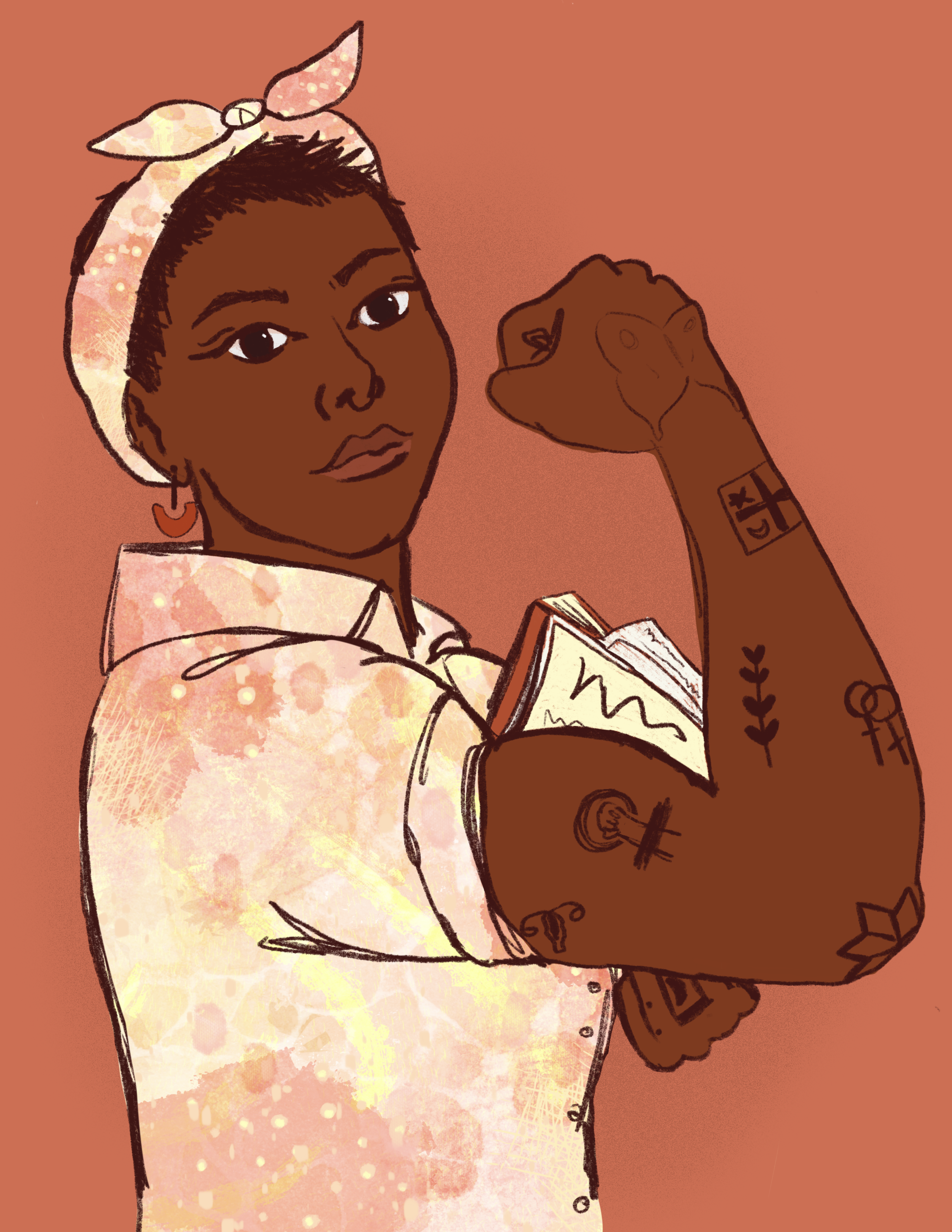Happy Women’s History Month. As we enter the month to honor the bold, powerful women of the 21st century, it is important to feature stories and platforms that showcase women of color, the queer community, and anyone who identifies as a woman. In 2021, the feminist movements that have been front and center include but are not limited to, MeToo Movement, intersectionality in feminism, equality across genders, and more education on sexual health and human rights. Modern-day feminism is broad and features many wings, subunits, and cultures that are all about getting equality across all humans in every capacity. Being a feminist means believing in“the advocacy of women’s rights based on the equality of the sexes.” (Dictionary)
This month in the Free Press, we will be featuring women profiles, women-run local businesses, women athletes, students, and staff that are a part of the USM, Maine, and Portland communities. Before the Free Press, in previous waves of feminists, Maine had many women-run and written newspapers that featured stories of local women, the LGTBQ+ community, and gave voices to fellow neighbors.
The Maine Lesbian Feminist Newsletter started in 1976 and was published until 1984. The newsletter group was based out of Belfast, Maine, and featured a calendar of events. These events included support groups for parents of queer children and fellow LGBTQ+ members, resources for mental health and couples therapy, as well as dances, charity events, walks, and protests in local areas. The newsletter often supported feminist and women-run businesses, restaurants, and local artists. Within each newsletter, you could find artwork, doodles, and writing from people in the area and LGBTQ+ and feminist communities. Each newsletter had donations and ways to support artwork and benefits for sexual education or to help those incarcerated and to fundraise for funerals and other events. Rather than just articles, there were letters, the listing of events, images, and small excerpts that were included.
Another second-wave feminist paper is called, Our Paper, based out of Chelsea, Maine. Our Paper was another publication that focuses on Portland and Maine’s alternative culture and the LGBTQ+ community. Started in the early 1990s, Our Paper defined their focus “is to explore, educate and entertain our readership with Maine’s best alternative publications. Our content contains, but again, is not limited to, the alternate lifestyles of Maine, New Hampshire, and that of Northern Massachusetts.” The paper features articles from readers and writers of the organization, as they had a lot of local input in Maine. They often wrote of personal experiences and reflections of being feminist, or queer in New England in the 1990s. Articles had topics from local music, places to eat, profiles on local organizations, facts about being gay and personal reflections on coming out, and being openly queer, and making friends.
Lastly, the paper 10% paper was another monthly paper that featured voices in Maine for the feminist and LGBTQ+ communities. 10% paper started in the late 1980s and went through the early 1990s, featuring mostly topics in the second wave of feminism. While the majority of this paper profiled local chapters and organizations for women and the queer community, they also shared national information on equal rights and news about women and the feminist movement. They had letters to the editors and the general public. As well as food ads and comics and where to find sapphic books and dirty magazines in the Portland area.
To read all of these papers, newsletters and articles please check out the USM Digital Commons for copies in their Lesbian, Gay, Bisexual, and Transgender Collection by Jean Byers Sampson Center for Diversity in Maine Special Collections.
Giving a voice to the women, LGBTQ+ and feminist movement have always been important to Maine and the Portland area. These newspapers, articles, and newsletters were the start of the alternative reading that happened in the second wave of feminism in the 1980s-1990s. Now as we are in the fourth wave, which started in 2012, and has a focus on intersectionality and issues with slut-shaming, body positivity, and sexual harassment with movements like #MeToo. A lot of magazines and newsletters have moved to the online space. Some online feminist magazines and platforms to follow would be, Gen-Zine (@thegenzine), Darling Media (@darling), and Maine Women’s Magazine (@mainewomenmagazine).

